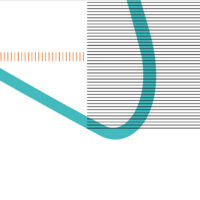Herein lies the paramount importance of memory as the stepping-stone from sentient to intellectual soul. Memory, as the German word Er-innerung reminds us, internalizes; it makes the outward inward. The sentient soul can already effect this to some extent, inasmuch as it retains for a time inward pictures of the outer world. Else it would be merely sentient body. When there is a car outside the door and a bustle of some sort inside, especially if there is anything like luggage about, my cat displays great uneasiness, and this is clearly because he retains some sort of picture of previous departures resulting in unwelcome solitudes. But I cannot by any stretch of imagination conceive of my cat sitting down and thinking to himself: “Let’s see, what was I doing this time yesterday?” This is memory at a different stage altogether. …. It is this sort of memory that makes possible the birth of speech whether in the evolution of [humanity] or in the growing child. In the Greek mythology, Mnemosyne–Memory–was the mother of the Muses. Both speech and thought can indeed be thought of as begot in the ventricle of memory; for it is there that they are conceived.
From Owen Barfield, “The Ventricle of Memory” in Anthroposophical Quarterly 20.1 (Spring 1975): 10-11.
More Owen Barfield
Image Speech Dnk/unsplash










Is it possible that Barfield has formulated an argument for the importance of making professional experience into research in several steps? Recall and record the events of the work day, the work week or of a particularly eventful moment. Share, perhaps not all of the memories, but chosen fragments with trusted colleagues. Compare these recordings with notes from other, similar working groups. Publish the findings in a form that can be helpful for younger, less experienced colleagues, as an offering, not as dictation?
Barfield posits that memory internalizes, making the outward inward. When we first individually and then in a professional context internalize, we create the foundation for something which can be externalized again, for the sake of future co-workers.
See Donald A. Schon, ”The Reflective Practitioner”, 1983